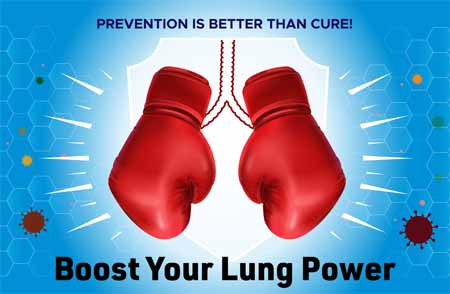When it comes to physical fitness, few things are more important than lung capacity. The lungs play a key role in the entire respiratory system and they help provide oxygen to the body while removing carbon dioxide. Lung capacity is also an indicator of overall health because if your lungs aren’t healthy, you’re not healthy!
What Factors Affect Lung Capacity?

There are so many things that affect lung capacity. Whether you’re a healthy athlete or someone who’s never exercised in their life, many factors can affect your overall lung capacity. Here are some of the main things that play a role in lung capacity.
Age
Your age is one of the biggest factors that will affect your lung capacity. Although the lungs have a certain elasticity that allows them to stretch and grow as you age, they don’t change too drastically. Therefore a healthy twenty-year-old will be able to hold more air in their lungs than a seventy-year-old person simply because they haven’t been around as long.
Height
Height is another huge factor that will affect your lung capacity. If you’re a taller person, it’s no surprise that your lung capacity might be bigger than someone shorter. Generally speaking, the average male (who has never smoked) has a 2-liter lung capacity, and the average female (who has never smoked) has 1.5 liters.
Smoking
The more time someone has spent smoking, the less capacity their lungs will have. This is because smokers are putting toxic chemicals into their body that reduces elasticity and damages cells. These toxins also start to fill up your lungs so you can’t take as deep of breaths as before which further affects your lung capacity. Browse around this site to find out extra resources on Lungentrainer.
Physical Activity
The more physically active someone is, the better their lung capacity will be. This is because regular exercise helps increase the amount of blood and oxygen that’s flowing to your body; additionally, it keeps you in good cardiovascular health which means that your heart can pump much more blood per beat than before. Therefore even if someone smokes for a long time and doesn’t exercise, an athlete will still have better lung capacity than them because of their healthy lifestyle.
Altitude
Altitude can also affect your lung capacity. When you’re at a high altitude, there’s less oxygen in the air, making it harder to breathe and take deeper breaths. It can feel like you have asthma when you’re at a high altitude because even though your body is trying to get more oxygen, there isn’t enough in the air to allow it.
Gender
The last factor that can affect your lung capacity is your gender. As previously stated, males and females will have different lung capacities because of the various levels of hormones (and other factors) in their body such as estrogen and testosterone. There’s also a difference between age groups for both genders; however, there aren’t any significant differences between older or younger people of the same gender.
Conclusion
This blog has focused on the various factors that can affect your lung capacity. Knowing these factors will help you to take better care of your lungs, and it will also be helpful when communicating with others about the health benefits of exercise!

